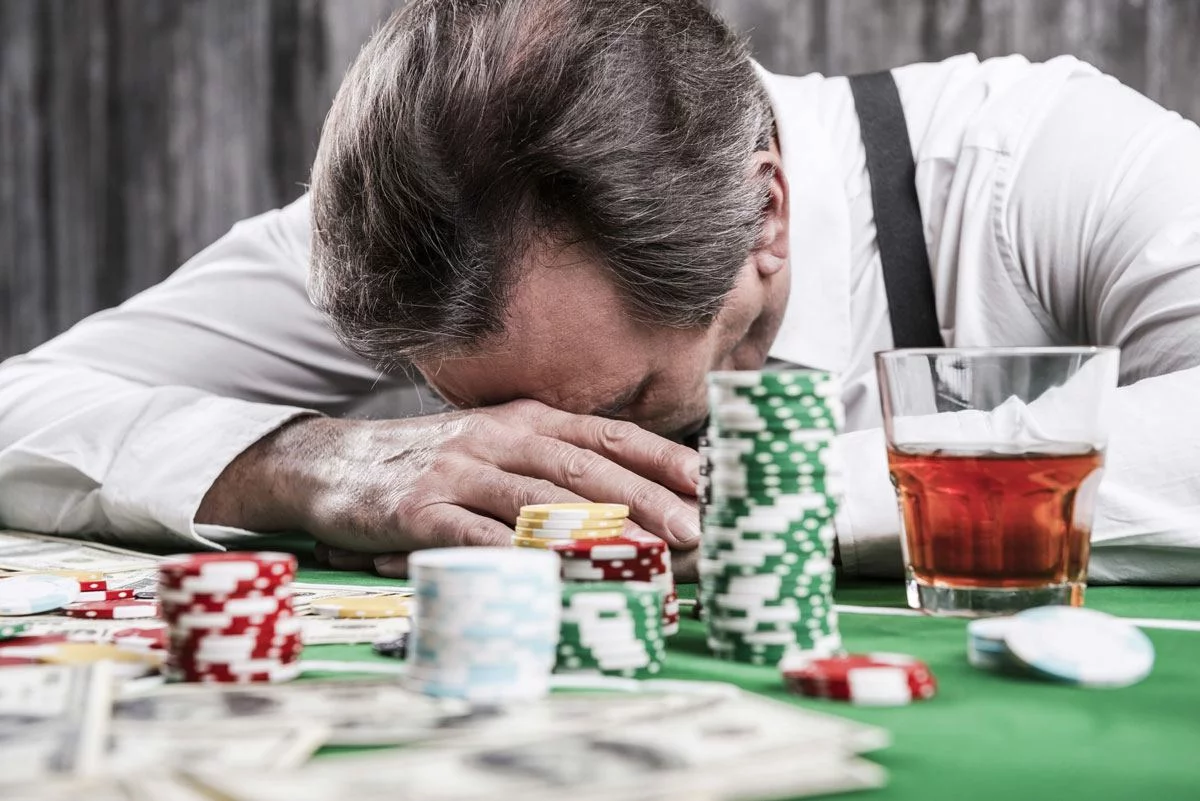Gambling has always been an important part of British social culture. But it wasn’t until 2005 that the gambling boom truly began. This was when Tony Blair’s Labour government passed the infamous Gambling Act, significantly liberalising existing gambling laws.
Since then, the gambling industry has only kept growing, reaching an impressive gross yield of £14.1 billion in the year to March 2022. Furthermore, in the year to March 2023, approximately 44% of Brits said they gambled at least once, with an average person spending more than £140 a year on betting and gaming.
But as these numbers keep growing, the question has been asked of whether the UK is facing a nationwide gambling problem. Indeed, the gambling issue has been on the radar for some time now, especially since more high-profile figures have started to come forward to seek gambling addiction treatment and speak openly about the risks of their gambling habits.
With more light shed on this growing problem, the UK government is now looking for ways to curb the gambling industry’s impact on the British population. The question is, though, will it be enough? To answer that, we must dive deeper into the prevalence of gambling addiction in the UK.
UK Gambling Trends & Statistics
First and foremost, let’s look at some of the most significant UK gambling trends and statistics:
- 44% of Brits gambled at least once from March 2022 to March 2023.
- On average, a UK gambler spends approximately £141 a year and £2.70 a week on betting and gaming.
- According to the Gambling Commission, there are estimated to be 168,149 problem gamblers in the UK – up by 50% from 2022 – with almost 1.7 million being at some level of risk from gambling.
- Brits aged 20-24 are the most likely to develop a gambling problem, with men being approximately 7 times more likely to become problem gamblers than women.
- 26% of Brits participate in online gambling activities.
- The National Lottery is the most popular form of gambling in the UK, with 27.6% of the UK population participating in the year to March 2023.
- UK adults spent approximately £3.3 billion on betting and gaming in the year to March 2023.
- Monthly online gambling participation in the UK has grown by almost 80% between 2020 and 2023.
Understanding Gambling Addiction
Despite the growing gambling addiction awareness in the UK, many still underestimate this problem. The reason is that to many Brits, gambling is harmless fun. It’s a part of the social experience, like going out for a pint or playing a football game with your friends.
And sure, it’s not like every Brit is at risk of developing a gambling addiction. As some research suggests, though, 1.4 million people in the UK are at such a risk, and that’s not a number one should underestimate.
Gambling addiction (otherwise known as ‘problem gambling’ or ‘compulsive gambling’) is a severe condition, with its effects on the human brain similar to drug or alcohol addiction. Essentially, it all comes down to our brain’s reward system, which treats gambling as a positive experience and releases feel-good chemicals whenever you play.
Once that happens, it becomes extremely challenging to stop, as your brain requires more ‘gambling doses’ for the reward system to function correctly. This can lead to you developing a fully-fledged gambling problem, which symptoms include compulsive gambling, placing bets you can’t afford, constant urge to gamble, and borrowing or stealing money to satisfy your gambling cravings.
These can lead to severe consequences, such as bankruptcy, destroyed family relationships, serious mental health impacts, and even suicide.
The scope and severity of problem gambling often raise a question about what causes gambling addiction. This is a question almost impossible to answer as the causes of compulsive gambling vary from one person to another. However, the most common risk factors include:
- mental health disorders, such as depression or PTSD;
- impulsive personality;
- genetics;
- gambling problems in the family;
- and dopamine deficiency.
Prevalence of Gambling in the UK: The Growing Problem or a Harmless Trend?
So yes, based on what we’ve covered already, gambling in the UK is extremely popular, with almost half of the UK population gambling at least once in the year to March 2023. But what are the exact numbers behind UK gambling? What are the reasons for it being so popular in the UK, and does the UK government do anything to decrease gambling’s prevalence?
How Many People Gamble in the UK?
As of March 2023, 44% of Brits engaged in gambling activity at least once throughout the year. That’s an increase from 43% in 2022 and 40% in 2021. However, that number is still yet to reach pre-pandemic numbers, with 47% of Brits claiming in March 2020 to have engaged in gambling once from March 2019.
There has also been a significant increase in the number of Brits gambling online. In 2018, only 18% of the UK population engaged in a form of online gambling, whereas in 2023, that percentage reached 26%, mostly due to the COVID-19 pandemic, which forced in-person gamblers to switch to online gambling.
These high numbers translate to the growing UK gambling market size. As of 2023, the gross gambling yield (GGY) for the UK gambling industry reached £14.1 billion, with Brits spending a total of £3.3 billion on gambling in the year to March 2023, which means an average UK gambler spends £141 annually gambling.
However, what’s most worrying is the growing number of problem gamblers. According to the official survey from the Gambling Commission, 168,149 Brits struggle with gambling addiction, which equates to 0.3% of the UK population. That’s a 50% rise compared to 2022, but the number is still lower than the pre-pandemic gambling problem rate of 0.6% in 2020.
Furthermore, as some studies suggest, that number is undervalued, and the actual figures are much more worrying. In 2020, the GambleWare charity issued a survey which estimated that approximately 1.4 million Brits struggle with problem gambling. That’s 2.7% of the UK population, a significant increase from the official figures.
And while these numbers are said to be overestimated, the factual issue might still be more severe than the official figures suggest, especially with approximately 1.7 million Brits being at some level of risk from gambling.
What are the Reasons Behind the Growth of Gambling in the UK?
Gambling has always been a significant part of UK history. Indeed, Brits have been gambling and betting for centuries, with the earliest records of sports betting dating back to the 16th century. Sports betting and gambling were then popularised in the 20th century, leading to the 2005 Gambling Act, which significantly loosened the gambling laws.
Not only that, gambling is also heavily advertised, with sports betting and casino brands present across all advertising channels. Many such brands are sponsored by prominent figures, with the companies themselves having a lot of influence across various sports, especially football.
Another reason is the rise of online gambling. As covered, approximately 26% of Brits engage in some form of online gambling. Whether it’s sports betting or online casino gaming, gambling sites offer convenience over brick-and-mortar facilities, allowing punters and gamers to gamble from the comfort of their own homes. Such sites also frequently offer promotions and bonuses, which further increase engagement.
The pandemic also played its part. And while there’s been an overall decline in UK gambling engagement, we’re starting to experience an upward trend, with the prevalence of gambling in the UK rising from 40% of the population admitting to gambling in 2021 to 44% in 2023. If this trend continues, we may soon see it exceeding the pre-pandemic numbers, with 47% of Brits admitting they gambled at least once between March 2019 and 2020.
The UK Government’s Reaction
Despite gambling being on the rise in the UK for many years, the government only recently decided to update gambling regulations. These new laws were introduced to tackle the growing gambling problem and prevent gambling addiction. The most significant new UK gambling laws include:
- New online stake limit – online casinos will now need to abide by a new online stake limit on online slots, with the default maximum limit being £2 to £15 per spin.
- New powers for the Gambling Commission – as the primary UK gambling regulator, the Gambling Commission will now have additional powers at its disposal to combat unauthorised gambling operations.
- Higher protection for players – the new laws will require gambling operators to perform more thorough checks to assess whether a player can afford to gamble.
- Restricting bonus offers – many gambling sites and operators offer UK players exclusive deals to attract new customers; the new laws will allow the Gambling Commission to take a closer look at such promotions to ensure they aren’t used in harmful ways.
- New statutory gambling operator levy – gambling operators will now pay a new increased levy, which will then be used to fund research, education, and treatment of gambling addiction.
- Higher protection for young players – according to statistics, people aged 20-24 are at the highest risk of developing a gambling addiction; the new laws include an advertising ban for people under 25 and require more strict age verification checks to prevent young and underaged individuals from gambling.
Will these new regulations be enough? It’s too soon to say, but it’s definitely a step in the right direction. If, despite these laws, the number of gamblers continues to grow, it might indicate that more strict regulations need to be put in place to regulate the market.
One thing is for certain: the gambling problem isn’t something that should be underestimated in the UK, and it’s good news that the awareness surrounding the subject is growing.
When to Seek Professional Help for Compulsive Gambling?
One significant problem with problem gambling is that many Brits struggle with telling the difference between compulsive gambling and ‘ordinary’ gambling. The issue here is that the majority of society doesn’t condone gambling. To many Brits, there’s nothing wrong with placing a few bets during the Premier League matchday or going out for a spin in the casino on a night out.
And sure, placing one bet a week or playing a few rounds of online poker doesn’t necessarily have to lead to gambling addiction. To avoid the risks, though, one must be aware of the warning signs, and, unfortunately, many Brits remain uneducated when it comes to paying attention to such signals.
Essentially, if you worry that you or your loved one might be addicted to gambling, pay attention to the following symptoms:
- You’re constantly preoccupied with gambling and experience the constant urge to gamble;
- You treat gambling as an escape from your problems;
- Your gambling habits are negatively affecting your work, family life, and relationships;
- You keep finding excuses to engage in gambling;
- You continuously increase the stakes, even when you can’t afford it;
- You begin to borrow money from friends and family or steal them to fund your addiction;
- You gamble to recoup the losses.
Once you start noticing these symptoms, you must seek professional gambling addiction treatment immediately. When it comes to that, many Brits decide to seek rehab outside the UK, with The Dawn establishing itself as the go-to treatment centre for gambling addicts.
Why You Shouldn’t Underestimate Problem Gambling
The Gambling Commission’s survey suggests that approximately 160 thousand Brits are problem gamblers. However, some studies imply that this number is underestimated, and the factual figures might exceed 1.4 million. And while this number is believed to be too high, it indicates that the problem is more severe than the official figures suggest.
We also can’t forget about the stigma and shame surrounding not only gambling addiction but other addictions as well, both substance-related and behavioural. That social prejudice prevents people from coming forward for support and treatment, often leading to severe consequences, as gambling addiction can have a devastating impact on one’s life.
The most common negative effects of gambling addiction include:
- Financial problems – problem gambling can lead to extensive financial losses, often resulting in excessive debt, bankruptcy, or even homelessness.
- Broken relationships – any addiction can break relationships with one’s family and friends, and gambling addiction isn’t an exception, as potential financial and mental health impacts can affect one’s loved ones.
- Health implications – problem gambling is often associated with several mental health issues, including depression, anxiety, and insomnia. It can also be a result or lead to other addictions, such as alcoholism or drug use disorder.
- Legal issues – compulsive gamblers often find themselves on the wrong side of the law as they try to get the money to fund their addiction illegally through robbery, fraud, or theft.
- Suicide – financial issues, broken relationships, and mental health problems associated with problem gambling often end up in suicide; in the UK alone, gambling addiction leads to between 117 and 496 suicides annually.
So yes, it’s imperative to react immediately after you notice any worrying gambling addiction symptoms in yourself or your loved one. And remember, if you’re afraid of the social stigma or pressure, you can always opt for a rehab abroad. Indeed, more and more Brits who struggle with addiction choose rehab outside the UK, with such centres offering privacy and complete removal from triggers, often at much lower prices than UK facilities.
How to Stop Gambling Addiction?
It might be possible to tackle gambling addiction in its early stages without rehab. However, for the treatment to be effective, you’ll still need professional help, either by going to therapy or joining a support group, such as Gamblers Anonymous. However, if your addiction starts affecting your life more and more severely, seeking professional rehab becomes imperative.
Rehab can also help with any co-occurring disorders you may have developed due to your gambling problem or that have been the cause of your addiction. At The Dawn Rehab, for example, we understand that every case is different and that it requires a personalised approach to treatment.
That is why our behavioural addiction treatment programmes combine various methods, providing problem gamblers with complex and individual treatment approaches. When it comes to treating compulsive gambling, the most common form of treatment is cognitive behavioural therapy (CBT).
CBT helps identify the root cause of one’s addiction and explore patterns and triggers that cause individuals to fall into gambling’s embrace. Through this therapy, a patient then learns coping mechanisms and methods of dealing with stress and triggers to prevent them from relapsing.
Group therapy has also proven itself to be an effective way of treating gambling addiction. It allows patients to learn that they’re not the only ones struggling with similar demons, allowing them to share their experiences with other individuals and benefit from the support from people who face the same struggles.
How The Dawn Has Become the #1 Choice for Gambling Addiction Treatment for People from the UK

Finding a top-quality gambling addiction rehab centre in the UK can be a struggle, especially finding one that won’t ruin you financially. That is why many Brits opt for rehab abroad instead, and when it comes to that, The Dawn has been the most favourite destination for people from the UK.
As the #1 rehabilitation centre in Thailand, The Dawn has established itself as the leading destination for Brits seeking rehabilitation and mental wellness retreats. Located in a mesmerising and peaceful riverfront sanctuary in Chiang Mai, The Dawn Wellness Centre and Rehab Thailand is the go-to place for Brits seeking professional and effective treatment for any addiction or mental health issue. Why, may you ask?
First of all, as a Thai rehab centre, The Dawn can offer UK patients resort style accommodation and facilities for a fraction of the price charged by Western facilities. Secondly, our unique and personalised approach to treatment has gained us an impressive reputation in the industry, with our expert staff specialising in both behavioural and substance addiction treatment, as well as mental health treatment.
Your better, addiction-free life starts now. Contact us today for a free assessment and to reclaim control over your life!
Resources
- https://www.gov.uk/government/publications/gambling-related-harms-evidence-review/gambling-related-harms-evidence-review-summary–2#:~:text=Prevalence%20of%20gambling%20and%20harms,by%20an%20others%20people’s%20gambling.
- https://www.theguardian.com/uk-news/2020/may/19/uk-gambling-addiction-yougov-research
- https://www.bmj.com/content/381/bmj.p748
- https://www.gamblingcommission.gov.uk/statistics-and-research/publication/statistics-on-participation-and-problem-gambling-for-the-year-to-march-2023
- https://www.skysports.com/football/news/11095/12408267/peter-shilton-england-mens-most-capped-footballer-urges-end-to-gambling-advertising-in-football
- https://www.finder.com/uk/gambling-statistics
- https://www.xace.io/payments/uk-gambling-statistics-2023
Related Posts
 More UK Footballers Seeking Treatment for Gambling Addiction Highlight Extent of UK’s Gambling Problem
As high-profile figures come forward to seek treatment for problem gambling and the negative impacts of gambling addiction continue to expand, the UK is looking for ways to curb the...
More UK Footballers Seeking Treatment for Gambling Addiction Highlight Extent of UK’s Gambling Problem
As high-profile figures come forward to seek treatment for problem gambling and the negative impacts of gambling addiction continue to expand, the UK is looking for ways to curb the...
 A Losing Bet: Gambling Addiction in the United Kingdom and Australia
The bright lights of Las Vegas. The cheers from lucky lottery winners. The upbeat entertainment hosted by casinos. Around the world, gambling presents an exciting image of itself. But this...
A Losing Bet: Gambling Addiction in the United Kingdom and Australia
The bright lights of Las Vegas. The cheers from lucky lottery winners. The upbeat entertainment hosted by casinos. Around the world, gambling presents an exciting image of itself. But this...
 The Dark Side of Sports – Can Betting on The World Cup Lead to Gambling Addiction?
As World Cup betting reaches an all-time high, so does gambling addiction. All over the world football fans were glued to their television sets with excitement as France won the...
The Dark Side of Sports – Can Betting on The World Cup Lead to Gambling Addiction?
As World Cup betting reaches an all-time high, so does gambling addiction. All over the world football fans were glued to their television sets with excitement as France won the...
 Why Do People From the UK Pick Us?
With a growing number of Brits struggling to overcome drug and alcohol addictions – along with a surging mental health crisis and a failing NHS – more British people than...
Why Do People From the UK Pick Us?
With a growing number of Brits struggling to overcome drug and alcohol addictions – along with a surging mental health crisis and a failing NHS – more British people than...





